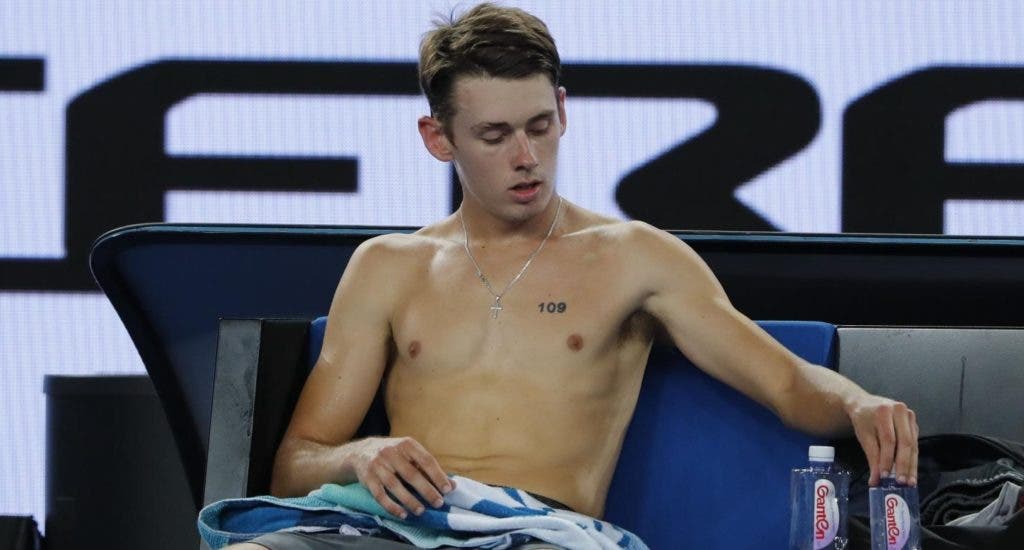This website uses cookies so that we can provide you with the best user experience possible. Cookie information is stored in your browser and performs functions such as recognising you when you return to our website and helping our team to understand which sections of the website you find most interesting and useful.
De Minaur: «Voltei a um lugar que tinha abandonado: sou feliz»

Alex De Minaur, jovem australiano de 21 anos, tem vivido uma época desafiante. Começou em grande forma, conquistando o seu primeiro título da carreira em Sydey — cidade onde nasceu — mas depois enfrentou o seu grande revés da carreira, com uma lesão grave na virilha. O regresso à melhor forma aconteceu no verão, com um segundo título (Atlanta) e oitavos-de-final no US Open, batendo Kei Nishikori pelo caminho. O australiano, que treina e vive em Alicante (Espanha), garante estar agora finalmente a sentir-se bem.
“Passei muito mal durante a minha lesão. Esperava voltar ao mesmo nível no regresso, mas isso não aconteceu. Estive demasiado tempo sem conseguir ganhar um encontro”, lembrou De Minaur, que não venceu qualquer partida entre fevereiro e maio, numa mensagem emocionada para o Instagram ‘Behind the Racket’, página gerida pelo norte-americano Noah Rubin, onde vários tenistas contam o que está por detrás da raqueta.
O jovem, que segue no 31.º posto ATP, assume que voltou a ser feliz nesta fase. “O ténis é uma batalha. A quantidade de coisas que precisamos de fazer para nos prepararmos para os encontros é incrível. O meu psicólogo (…) disse-me que o trabalho que estávamos a fazer não era suficiente. De facto, tivemos que fazer muito mais, porque o que estava por vir era mais difícil do que eu poderia imaginar, porque as expectativas derivadas da melhoria de um grande ano levariam a muitas dificuldades. Agora falo com ele quase todos os dias por telefone. Eu tenho uma tendência para ter expectativas sobre mim mesmo e quando não consigo fico com raiva de mim mesmo. O meu psicólogo tenta que eu tenha mais calma, e me divirta, porque é nessa altura e com esse estado de espírito que jogo melhor ténis. Tentei reprimir muitas emoções diferentes, mas não aguentava mais. A melhor coisa que aconteceu comigo foi estar mais vezes um psicólogo. Estou muito feliz por voltar a um lugar que abandonei por algum tempo: a felicidade. “
- Categorias:
- ATP World Tour

